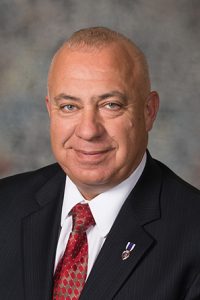Early review of liquor license applications proposed
The General Affairs Committee considered a bill Feb. 5 that seeks to help certain potential establishments in Nebraska obtain liquor licenses under the Nebraska Liquor Control Act.

LB1276, introduced by Gordon Sen. Tom Brewer, would apply to applications for retail, bottle club, craft brewery or microdistillery licenses in second class cities and villages. Villages are communities with a population of 100 to 800 people and second class cities are those with a population of 801 to 5,000.
Under the bill, if a city or village clerk is informed of a protest to the issuance of a proposed license prior to the applicant’s purchase of land for construction of the establishment, or the renovation of an existing property, the clerk could submit a request to the Nebraska Liquor Control Commission to waive the 45-day objection period and hold a hearing on the issuance of the license.
The commission then could hold a hearing and rule on the issuance or denial of the license on the basis of the applicant submitting the business plan for a future establishment.
Brewer said proprietors currently are losing out on business investments due to the uncertainty of obtaining a liquor license. Being able to know the likelihood of approval would help small business owners, he said.
“[LB1276] gives potential proprietors an opportunity to know ahead of a large investment whether or not the planned location would be granted a license, and therefore the opportunity to invest in the given facility,” he said.
Shawn Wenstrom, co-owner and co-founder of 1515 Brewing, spoke in support of the proposal. He said efforts to expand his business in Tekamah have been delayed due to complications with the liquor license application process.
“For the past 18 months, my family and I have diligently followed through every step of the liquor license application process,” Wenstrom said. “This uncertainty [in the approval process] coupled with financial and personal investments has left us in a precarious situation.”
Also testifying in support of the proposal was small business owner Cindy Chatt, who said the bill is crucial for fostering economic growth and community revitalization.
“The economic impact of these developments cannot be overstated,” she said. “Property will be brought onto the tax roll, we’ll increase the revenue through sales tax [and] it also will help businesses … by [bringing] additional tourists and patrons into our town.”
Hobert Rupe, executive director of the Nebraska Liquor Control Commission, testified in a neutral capacity. He said use of the term ‘issuance’ throughout the bill implies that a license would be issued to a proprietor on plans alone, prior to the necessary reviews, including a building inspection conducted by the state fire marshal.
No one spoke in opposition to LB1276 and the committee took no immediate action.

